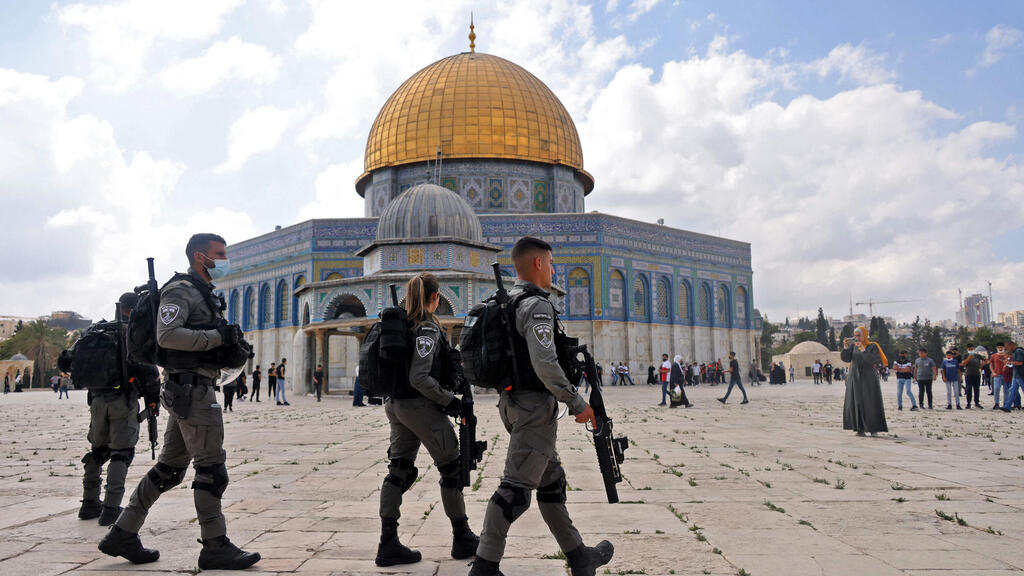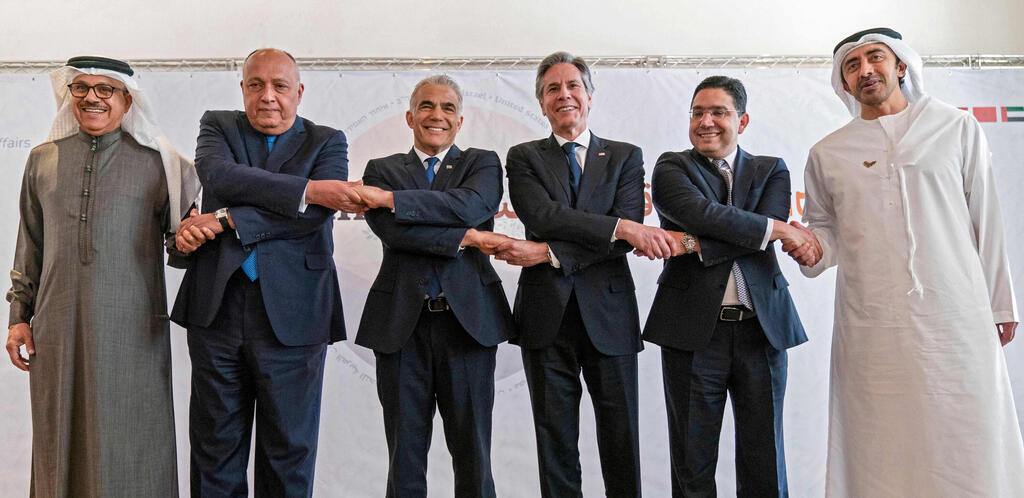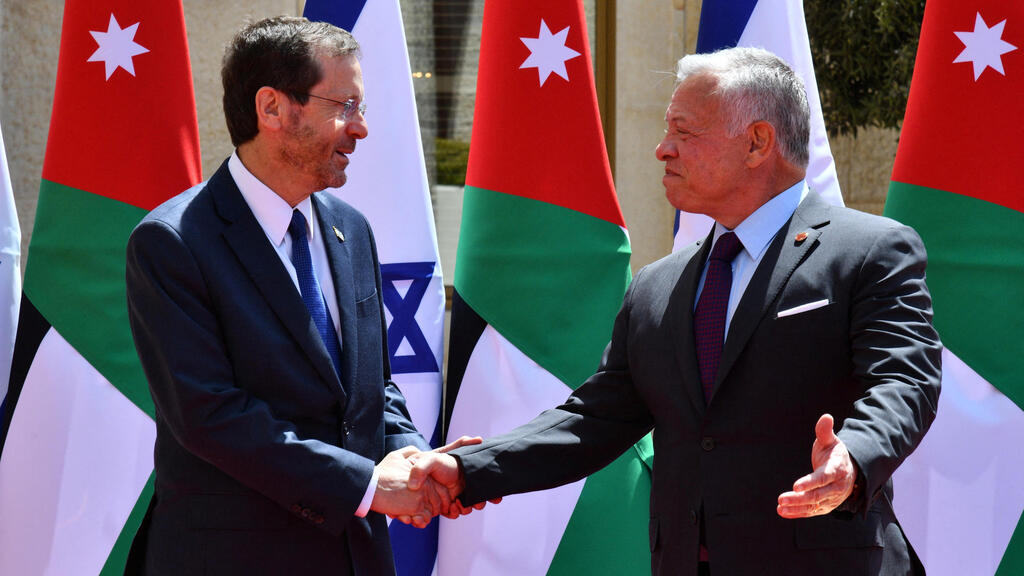After a series of deadly attacks against Israelis and a flurry of regional diplomacy in the last week, the tectonic shifts that have occurred in the Middle East have become even more visible. One of those changes is the status of the long-standing Israel-Palestinian conflict.
Once a regular supplier of headlines for news outlets around the globe, it appears to have lost the interest of its audience. And while not at the forefront, the conflict has not been resolved and there are ever-present reminders.
In the three deadly attacks in Israel in the last week, 11 people were killed. While the first two attacks were carried out by Israeli Arabs who claimed affiliation to the Islamic State, the latest, on Tuesday evening, was carried out by a Palestinian man from the West Bank. Five people were killed in that attack in the central Israeli city of Bnei Brak, in what served as a bloody reminder that the Israel-Palestinian conflict still exists.
The photo-ops at an historic regional summit which Israel hosted at the start of the week could have blurred that fact, but the violence on the ground did not allow it.
“The conflict has not disappeared,” said Dr. Emmanuel Navon, an international relations expert at the Jerusalem Institute for Strategy and Security. “But Arab countries, which are interested in cooperation with Israel on the Iranian issue and on technology, are not willing to wait anymore for a compromise. This doesn’t mean they are ignoring the issue.”
As Israel hosted the foreign ministers of four Arab nations in the Negev desert, Palestinians voiced their dissatisfaction with the summit.
“Arab normalization meetings without ending the Israeli occupation of Palestine are just an illusion, a mirage, and a free reward for Israel,” Dr. Mohammad Shtayyeh, the Palestinian Authority prime minister, tweeted.
“There used to be only one conflict in the Middle East – the Israeli-Palestinian conflict,” said Moein Odeh, a lawyer and human rights expert from east Jerusalem. “Now we have other conflicts, from the bloody Syrian conflict, to the Arab Spring and events in different places such as Yemen. This took the attention away not only from the international community, also from the Arab world.”
“Priorities in the Arab world are pushing the Palestinian cause down the list,” Odeh said. “The international community is also exhausted, they spent billions of dollars and many hours to figure out how to solve the problem with no success,” he added.
Because of this, the conflict between Israel and the Palestinians largely has been sidelined in recent years. The last time both sides sat at the negotiating table was in 2014, in yet another failed attempt at a peace agreement. Since then, there have been periodic flare-ups. Yet, as the years go by, both sides appear to have gotten used to the violence.
“The current status quo is good for leaderships on both sides,” said Odeh, “For Israel there is no peace, but also no war. For the Palestinians, as long as there is no solution Israel can be blamed for everything… the Palestinian leadership is not looking to be held accountable.”
So, it is not only the majority of the international community that has given up on coaxing the sides to talk or find a solution; it appears that Israelis and Palestinians have become reconciled to being tied up in a perpetual conflict.
“There needs to be an understanding that we need to stop managing the conflict and try to resolve it, and only when this changes is a solution possible,” said Odeh.
A major hurdle to any future solution is the internal Palestinian rift between Hamas and the Fatah-led Palestinian Authority. The realization that the Palestinians are not united under one leadership has further reduced interest in the conflict. The split that has existed for over fifteen years makes negotiations with Israel a non-starter.
4 View gallery


Israeli soldiers in front of the Dome of the Rock, near the al-Aqsa Mosque
(Photo: AFP)
Ahead of the Muslim holy month of Ramadan, tensions are running high again. Last year, at the start of Ramadan, tensions in Jerusalem culminated in an 11-day conflict between Hamas and Israel.
“Peace with the Palestinians is the gateway to security, stability, peace and economic prosperity in the region,” read a statement from the Palestinian Foreign Ministry released as the regional summit hosted by Israel began.
The story is written by Keren Setton and reprinted with permission from The Media Line




